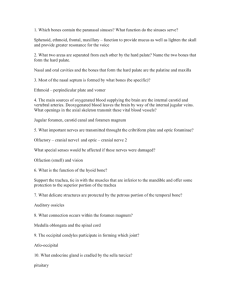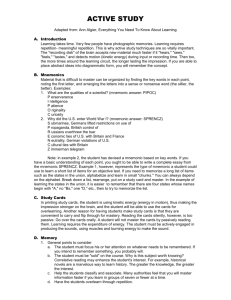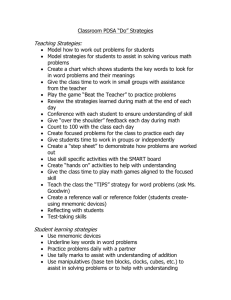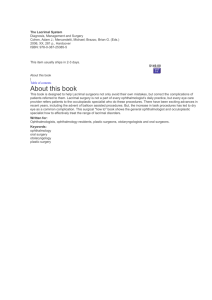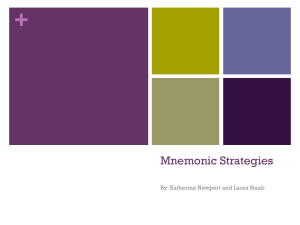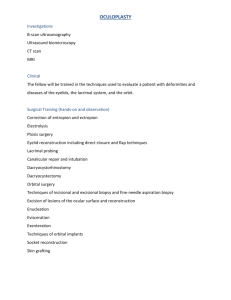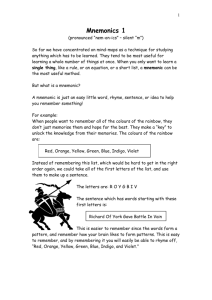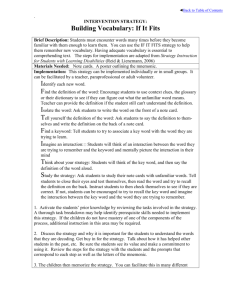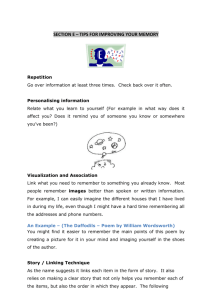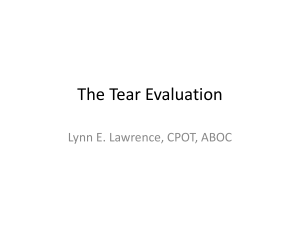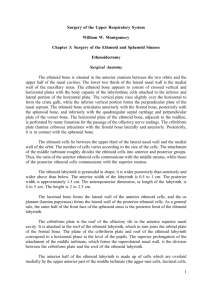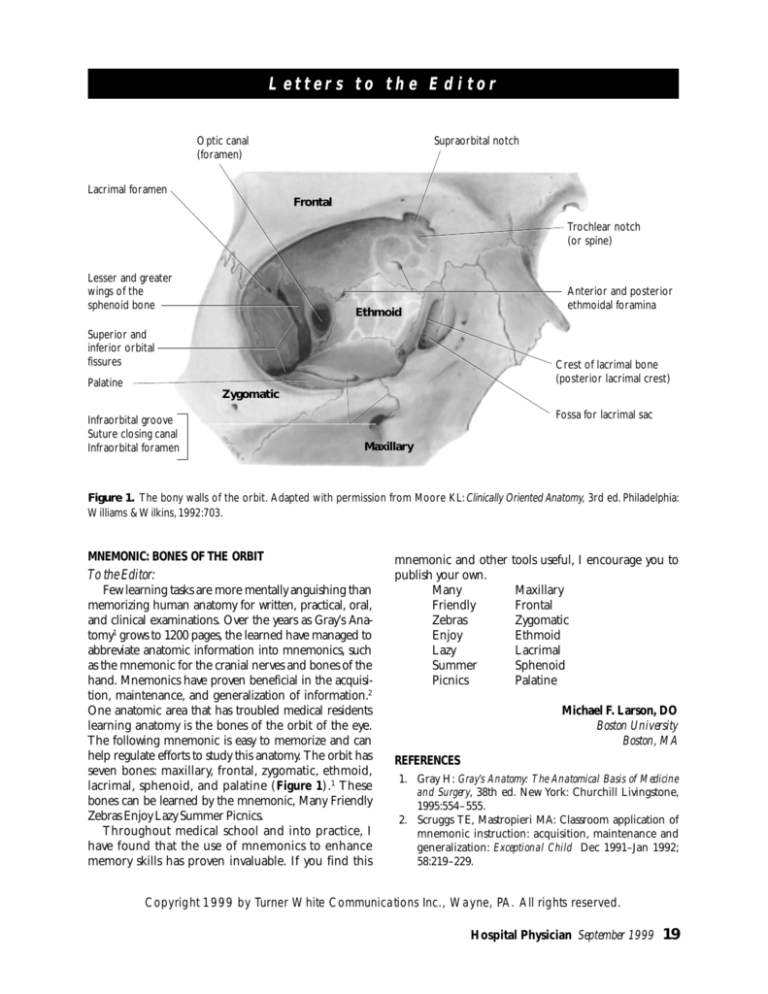
Letters to the Editor
Supraorbital notch
Optic canal
(foramen)
Lacrimal foramen
Frontal
Trochlear notch
(or spine)
Lesser and greater
wings of the
sphenoid bone
Anterior and posterior
ethmoidal foramina
Ethmoid
Superior and
inferior orbital
fissures
Crest of lacrimal bone
(posterior lacrimal crest)
Palatine
Zygomatic
Infraorbital groove
Suture closing canal
Infraorbital foramen
Fossa for lacrimal sac
Maxillary
Figure 1. The bony walls of the orbit. Adapted with permission from Moore KL: Clinically Oriented Anatomy, 3rd ed. Philadelphia:
Williams & Wilkins, 1992:703.
MNEMONIC: BONES OF THE ORBIT
To the Editor:
Few learning tasks are more mentally anguishing than
memorizing human anatomy for written, practical, oral,
and clinical examinations. Over the years as Gray’s Anatomy1 grows to 1200 pages, the learned have managed to
abbreviate anatomic information into mnemonics, such
as the mnemonic for the cranial nerves and bones of the
hand. Mnemonics have proven beneficial in the acquisition, maintenance, and generalization of information.2
One anatomic area that has troubled medical residents
learning anatomy is the bones of the orbit of the eye.
The following mnemonic is easy to memorize and can
help regulate efforts to study this anatomy. The orbit has
seven bones: maxillary, frontal, zygomatic, ethmoid,
lacrimal, sphenoid, and palatine (Figure 1).1 These
bones can be learned by the mnemonic, Many Friendly
Zebras Enjoy Lazy Summer Picnics.
Throughout medical school and into practice, I
have found that the use of mnemonics to enhance
memory skills has proven invaluable. If you find this
mnemonic and other
publish your own.
Many
Friendly
Zebras
Enjoy
Lazy
Summer
Picnics
tools useful, I encourage you to
Maxillary
Frontal
Zygomatic
Ethmoid
Lacrimal
Sphenoid
Palatine
Michael F. Larson, DO
Boston University
Boston, MA
REFERENCES
1. Gray H: Gray’s Anatomy: The Anatomical Basis of Medicine
and Surgery, 38th ed. New York: Churchill Livingstone,
1995:554–555.
2. Scruggs TE, Mastropieri MA: Classroom application of
mnemonic instruction: acquisition, maintenance and
generalization: Exceptional Child Dec 1991–Jan 1992;
58:219–229.
Copyright 1999 by Turner White Communications Inc., Wayne, PA. All rights reserved.
Hospital Physician September 1999
19

